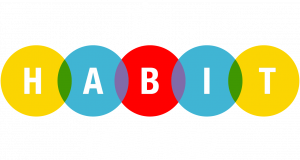The Truth about Habits

More than 40 percent of the actions people performed each day weren’t actual decisions, but habits. Most of the choices we make each day may feel like the products of well-considered decision making, but they’re not. They’re habits. Habits can be changed, if we understand how they work. The brain converts a sequence of actions into an automatic routine—is known as “chunking,” and it’s at the root of how habits form. There are dozens—if not hundreds—of behavioral chunks that we rely on every day. Habits, scientists say, emerge because the brain is constantly looking for ways to save effort. Left to its own devices, the brain will try to make almost any routine into a habit, because habits allow our minds to ramp down more often. Habits, as much as memory and reason, are at the root of how we behave. We might not remember the experiences that create our habits, but once they are lodged within our brains they influence how we act—often without our realization.
Habits are powerful, but delicate. They can emerge outside our consciousness, or can be deliberately designed. They often occur without our permission, but can be reshaped by fiddling with their parts. They shape our lives far more than we realize—they are so strong, in fact, that they cause our brains to cling to them at the exclusion of all else, including common sense.
This is how new habits are created: by putting together a cue (trigger), a routine, and a reward, and then cultivating a craving that drives the loop.
Cravings are what drive habits. And figuring out how to spark a craving makes creating a new habit easier. It’s as true now as it was almost a century ago. Every night, millions of people scrub their teeth in order to get a tingling feeling; every morning, millions put on their jogging shoes to capture an endorphin rush they’ve learned to crave.
“Champions don’t do extraordinary things, they do ordinary things, but they do them without thinking, too fast for the other team to react. They follow the habits they’ve learned.”
You Can’t Extinguish a Bad Habit, You Can Only Change It.
There are these two young fish swimming along and they happen to meet an older fish swimming the other way, who nods at them and says ‘Morning, boys. How’s the water?. And the two young fish swim on for a bit, and then eventually one of them looks over at the other and goes ‘What the hell is water?’
The water is habits, the unthinking choices and invisible decisions that surround us every day—and which, just by looking at them, become visible again.
